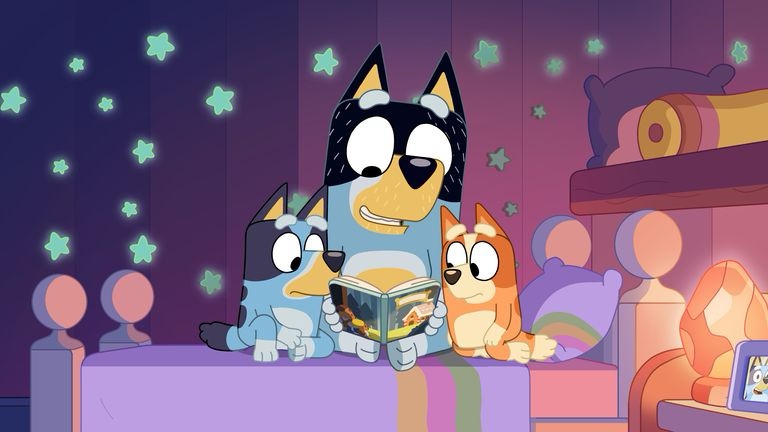
Bluey, the beloved Australian children’s television show, has won the hearts of families around the world. Beyond its entertaining and humorous plots, “Bluey” offers profound insights into parenting, particularly through the character of Bandit, Bluey’s dad. In this comprehensive blog post, we’ll explore in great detail how to become an exceptional dad by drawing inspiration from Bandit’s parenting style.
1. Spend Quality Time Together
One of the standout lessons from Bandit’s character is the value of spending quality time with your children. Bandit consistently engages in imaginative play and activities, actively participating in his children’s world. This quality time isn’t just fun; it’s also essential for building a strong bond and creating lasting memories.
2. Listen and Communicate
Effective communication is at the core of any healthy parent-child relationship. Bandit excels in listening to his children’s thoughts, feelings, and concerns. Being an attentive and empathetic listener fosters trust and understanding, allowing for open and honest communication between you and your child.
3. Be Patient and Playful
Bandit is the epitome of patience and playfulness. He allows his children to lead during playtime, encouraging their creativity and imagination. Patience and playfulness create an environment where your child feels safe to explore, learn, and have fun.
4. Teach Important Life Skills
“Bluey” often showcases Bandit using everyday situations to teach his children valuable life lessons. This approach demonstrates that learning doesn’t have to be dull or formal. You can use day-to-day experiences as opportunities to impart essential skills and instill important values in your child.
5. Set Boundaries with Love
Effective parenting involves setting boundaries and rules, but it’s how you do it that makes the difference. Bandit and Bluey’s mom, Chilli, consistently enforce rules with love and understanding. It’s a balance between providing structure and discipline while showing empathy and compassion.
6. Be a Role Model
Children often look up to their parents as role models. Bandit sets a positive example by demonstrating kindness, empathy, and respect in his actions. Being a role model isn’t just about telling your child what’s right; it’s about showing them through your behavior.
7. Encourage Independence
Independence is a critical aspect of a child’s development, and Bandit actively encourages his children to think for themselves and solve problems. Fostering independence helps your child gain confidence and resilience, crucial skills for navigating life’s challenges.
8. Show Love and Affection
Expressing love and affection is vital in any parent-child relationship. Bandit and Chilli shower their children with hugs, kisses, and words of affirmation. Letting your child know they are cherished and valued builds their self-esteem and emotional well-being.
A Work in Progress
Becoming a great dad is an ongoing journey filled with moments of joy, challenges, and growth. Drawing inspiration from Bandit’s parenting style in “Bluey” can help you become the exceptional dad your child needs. Remember, it’s not about being perfect, but about being there, being present, and giving your child the love, guidance, and support they need to thrive. Embrace the adventure of parenthood with the valuable lessons from this endearing animated series.
.
Other Resources
- The Awesome Dad Cheat Sheet: 18 Fatherhood Tips They Should’ve Handed Out at the Delivery Room
- New Dad Survival Guide: The Mindset
- 12 Best Movies About Fatherhood
- The Intentional Father: A Practical Guide to Raise Sons of Courage and Character (Includes Activities, Rites of Passage, and Steps for Parenting Boys
A girl’s father is the first man in her life, and probably the most influential.
David Jeremiah
The nature of impending fatherhood is that you are doing something that you’re unqualified to do, and then you become qualified while doing it.
John Green
You don’t raise heroes, you raise sons. And if you treat them like sons, they’ll turn out to be heroes, even if it’s just in your own eyes.
Walter M. Schirra, Sr.
Leave a Reply